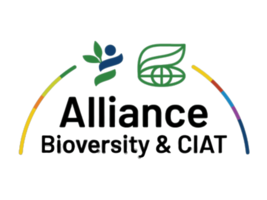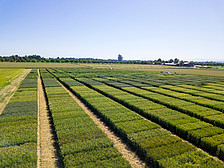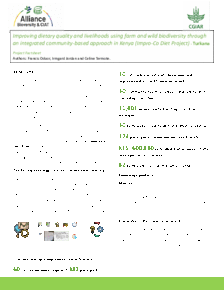Major Objectives
- Enhance dietary quality and diversity through the use of farm and wild biodiversity.
- Empower communities with context-specific, resilient strategies for food and nutrition security.
- Promote indigenous knowledge and community-driven innovation in agriculture and nutrition.
- Build local capacity through training, participatory cooking demonstrations, and village savings and loan (VSL) groups.
- Explore and manage the potential of wild edible plants (WEPs) to support nutrition and resilience.
Project Partner
Research Partners:
- Bioversity International (now part of the Alliance of Bioversity International and CIAT)
- University of Bonn
- Egerton University
- Kenya Agricultural and Livestock Research Organization (KALRO)
- Federal Ministry for Economic Cooperation and Development (BMZ)
- Deutsche Gesellschaft für Internationale Zusammenarbeit (GIZ)
- Save the Children
- County Government of Turkana
- University of Nairobi
- University of Hohenheim
- Georg-August University Göttingen
- Center for Development Research (ZEF), University of Bonn
Funding:
This work received financial support from the German Federal Ministry for Economic Cooperation and Development, commissioned and administered through the Deutsche Gesellschaft für Internationale Zusammenarbeit (GIZ) Fund for International Agricultural Research. Grant number: 81235248.




